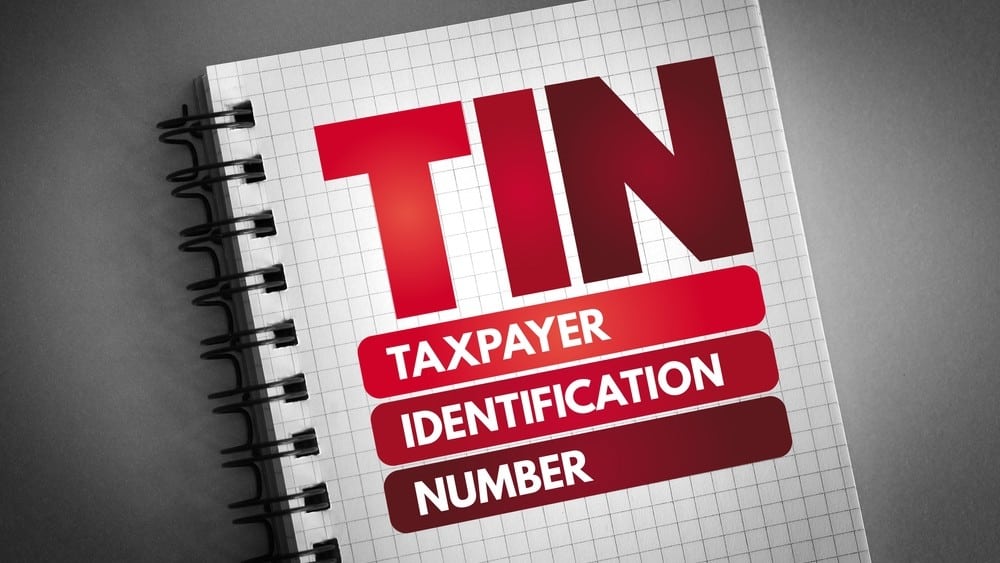Hi!
Welcome to today’s comprehensive and in-depth analysis of CPA vs EA education, roles, licensing, and salaries.
Making the best career choice in the increasingly complex world of finances is complicated.
And with the growing number of finance professions, knowing which careers will go out of vogue soon and which will stand the test of time is a tough call.
By the end of this comprehensive and interesting article, you will understand what is EA, what is CPA, and which career path is best for you.
Specifically, we will look into:
Many people love the idea of working as Certified Public Accountants (CPA), but hardly anyone ever dreams of becoming an enrolled agent (EA).
And it’s no surprise considering that American CPAs number 600000 while EAs number a paltry 50000.
So, which is the best career path for you between these two essential finance professions?
Continue reading to understand everything about CPA vs EA.
Let’s jump in!
What is the difference between CPA and EA?
Before analyzing these two financial professionals, let’s start with some brief definitions.
What is a CPA?
A CPA is a finance professional who offers clients financial and tax services, including preparing financial reports, performing tax audits, and offering financial advice.
CPAs earn their designation from their state’s board of accountancy after passing a uniform four-part CPA exam.
What is an EA?
An enrolled agent (EA) is the tax expert designated by the Internal Revenue Services (IRS) to offer federal-level tax services.
EAs appear before the IRS on taxpayers’ behalf at local and federal levels.
Additionally, an EA collects, prepares, and files tax returns for taxpayers.
The two finance professionals have many similarities and differences that we will explore in the following sections.
CPA vs EA license requirements
The CPA and EA designation are provided by the individual state board of accountancy and IRS, respectively after applicants fulfill the licensing requirements.
Here are the EA license requirements:
An EA license is federal licensure that allows enrolled agents to represent clients across all 50 states on tax matters.
You don’t need a degree, formal finance, or accounting education background to be an EA.
All you need to get an EA license is to show competence and a thorough understanding of tax laws and policies by passing the three-part EA exam or having verifiable working experience with the IRS.
An essential education requirement for an EA is continuous professional education(CPE).
CPEs help you understand the ethical responsibilities and ever-changing tax policies and laws.
You must complete at least 72 hours of CPE training every three years with a minimum of 16 hours yearly,
Here is how to earn the EA designation
There are two main ways to earn the EA license:
1. Pass the three-part IRS EA exam
2. Prove your IRS tax agent experience through a comprehensive background check
You need at least five years of experience working for the IRS to be eligible for the second option.
Both these steps require a PTIN (Preparer Tax Identification Number) and good tax standing with the IRS.

To become a CPA, you must satisfy the CPA licensing requirements as prescribed by your state’s board of accountancy.
Here are the general CPA license requirements:
- Bachelor’s degree
A master’s degree is favorable for more senior roles like Chief Financial Officer (CFO) and Chief Management Accountant (CMA) positions.
- 150 hours of formal education
Your formal education must include:
– at least 24-33 semester hours of account studies (excluding introductory topics)
– at least 24-27 hours of business-related courses
– at least 3 hours of business law and ethics.
- Pass the four-part uniform CPA exam with a 75% pass mark
- Complete at least one year of supervised mentoring from an active CPA
CPA requirements vary depending on the jurisdictions, with some states imposing more requirements than others.
Time requirements
On average, it will take you up to 8-9 years to be a fully qualified CPA in most states.
The 150 semester hours in a bachelor’s or master’s program plus the additional work experience of 1-2 years and an 18-month testing window means that your CPA journey will be a long one.
On the contrary, EA time requirements are minimal.
Infact EA licensing requires no work experience or formal education.
Successfully passing the SEE is the only requirement to earn an EA license.
Most EAs are former IRS employees and don’t sit for the licensing exam.
Licensing costs
On average, you’ll spend over $1000 to earn an enrolled agent designation.
Here is a cost breakdown for an enrolled agent:
Personal Tax Identification Number(PTIN) – $50
Each exam section – $111.94 (total is $335.82)
Enrollment fee – $30
Review course – $ 500
Total – $1075.82
CPA licensing costs are not constant and vary depending on the state but are much higher than EA licensing fees.
The educational requirements mean tuition for your bachelor’s or master’s degree will count towards your certification costs.
License application fee – $30 -$250
CPA review course – between $1000- $3000
Exam application fee- $50-$200
CPA exam fee – $150 to $250
Exam registration fee – upto $300
Ethics exam fee – between $150- $200
From our breakdown, it’s evident that you will spend up to $4000 to earn a CPA license.
CPA vs EA Licensing exam

To qualify as an enrolled agent or CPA requires you to pass a licensure exam.
Here are the differences between the EA and CPA exams:
The CPA licensing exam is a four-part exam offered by a state’s board of accountancy.
Each part of the exam takes over a 4-hours.
The four main parts of the CPA exam include:
- Auditing and attestation (AUD)
- Business Environment and Concepts (BEC)
- Financial Accounting and Reporting (FAR)
- Regulation (REG)
You need a 75% pass rate for each section to qualify as a CPA and complete the exam in an 18-month window.
You can schedule the CPA at any time during the year.
The EA exam or Special Enrollment Examination (SEE) is a three-part IRS certified EA test offered by Prometric, a third-party examination vendor.
The three-part IRS EA exam includes the following sections:
1. Individuals
This part of the SEE covers five significant sections and will test you on:
- Preliminary work and taxpayers data (15%)
- Income and assets (25%)
- Deductions and credit (25%)
- Taxation and advice (20%)
- Specialized returns for individuals (15%)
The pass rate for this section is approximately 75%.
2. Businesses
The business section of the SEE covers three main areas and will test you on:
- Businesses (45%)
- Business financial information (40%)
- Specialized returns and taxpayers (15%)
The pass rate for this section is approximately 60%.
3. Representation, practices, and procedures
This part of the EA exam is divided into four sections and will test you on:
- Practices and procedures (33%)
- IRS representation (25%)
- Registration types (25%)
- Filing process (17%)
Each section of the EA exam contains 100 multiple choices tested over 3.5 hours.
A 105 mark is the required SEE pass rate on a 130 grading scale.
Experience requirements
To practice as a CPA, you need to satisfy some experience requirements.
Typically for CPAs, one to two years of supervised mentoring by a practicing CPA is enough to get a CPA license.
Enrolled agents don’t need any educational or work experience to sit the SEE.
The only requirement is to get a PTIN, which you can do online for $30.
You can also gain EA licensing without sitting the EA exam if you’re a former IRS employee.
To qualify for this EA certification route, you need to:
- Satisfy the expertise and technical service requirements of IRS circular 230
- Apply for EA enrollment through the IRS form 23
- Satisfy a tax transcript review and background check to prove your tax experience
Salaries
Another big difference between an EA and a CPA is in salaries.
Generally, CPAs earn higher salaries than EAs.
The difference in salaries is because CPAs can work in more job sectors than EAs.
The salary range for the two professions largely depends on the location, industry, and years of experience.
According to a bureau of labor statistics 2020 report, CPAs earned an average of $73560 while enrolled agents earned $55640 per year.
CPAs and enrolled agents are important financial professionals in our everyday lives and share a lot of similarities.
In the following sections, we will analyze the similarities in the duties, qualities, and continuing education requirements between EAs and CPAs.
What are the similarities of CPA vs enrolled agents?
Roles and responsibilities
CPA and EA share common backgrounds, with most EAs being finance professionals in the accounting and auditing fields.
Here are the typical EA and CPA roles and duties.
1. Representing clients before IRS
As an EA or CPA, you will typically represent personal and corporate clients before the IRS on corporate and personal income tax issues.
You will liaise with the IRS to create practical tax plans, estimation, payments, and settlements on behalf of taxpayers.
Additionally, you will petition the IRS regarding your client’s rights, privileges, and liabilities as per the US tax code.
2. Prepare tax documents
EAs and CPAs are tax preparers who do tax reports, including quarterly, yearly, and multistate tax audit reports on behalf of their clients.
3. Provide tax advice
As an EA or CPA, you will advise your clients on the relevant tax laws and policies that involve them and act on their behalf on tax matters.
You will also guide tax decisions and recommend client action by discussing the legal ramifications of tax matters.
Career path
What is an EA vs CPA career path outlook?
Do these financial professionals perform the same duties?
Both a CPA and EA work in the financial services sector and provide clients with vital services.
Let’s analyze how CPA and EA career paths almost mirror each other
CPAs are in high demand and have numerous career options in accounting firms, small businesses, government, private, and education sectors.
As a CPA, you can work in any of the following jobs:
- Financial planning
- Management consultant
- Tax auditor
- Financial analysis
- Financial forensics
- General bookkeeping
- IT consulting
The career opportunities for CPAs are numerous and growing every day.
EAs are tax specialists with a detailed job description and often perform tax-related duties.
Due to their training and experience, an enrolled agent is a good fit for any following positions:
- Public accounting firm staff
- Small accounting firm staff
- Tax auditor
- Tax advisor
- Law firm staff
- Investment firm staff
CPAs and EA professional career paths often cross, and there is considerable overlap in their duties.
License renewal
CPAs and EAs need to renew their practicing licenses after a specified amount of time.
A CPA renews their license after one or two years, depending on the state, while an EA renews their license after three years.
Continuing education
A CPA and EA must complete a specific number of continuing education hours to maintain their licenses.
Enrolled agents need to complete at least 72 hours of continuing education every three years, while CPAs need to complete continuing professional education(CPE) hours that vary depending on the state.
Skills and Qualities
Since EAs and CPAs perform almost similar tasks, they share many skills and qualities, including the following:
- Effective communication
As an EA or CPA, you will constantly be dealing with clients and the IRS trying to bargain for tax settlements, creating tax plans, and providing tax advice.
Excellent communication skills will make you more effective and achieve more favorable client outcomes.
- Knowledge of the tax code
EAs and CPA tax professionals are tax experts who solve their client’s tax issues.
To be an effective EA or tax CPA, you must be an expert tax professional who is up to date with the latest IRS tax code.
- Excellent auditing skills
Like CPAs, Enrolled agents wear many hats, and one of their core duties is tax auditing.
Possessing excellent auditing skills will open the doors to many great career options considering that the demand for tax experts is very high.
- Business knowledge
Business knowledge will help you offer clients the best business advice concerning taxes.
You will be able to formulate practical tax plans, proposals, and strategies that you can present in front of the IRS on behalf of your clients.
- A keen eye for detail
Finance is an often complex and confusing field with so many moving parts.
To achieve success as an EA or CPA requires that you be thorough, meticulous, and keen in your duties.
EA vs CPA: Which should you choose?
If you love the complexity of working with taxes, then a career as an Enrolled Agent will suit you perfectly.
This is because EAs have the flexibility of representing clients on tax matters in any state.
EAs approach tax issues holistically and understand the tax code perfectly compared to CPAs.
Additionally, the education, licensing, and time expense of an EA is much lower than that of a CPA.
If you love the freedom to work in different finance jobs that don’t necessarily specialize in taxes, then a career as a CPA is a better option.
CPAs can specialize in different financial jobs, including consulting, management, and IT roles that don’t exclusively deal with taxes, unlike EA’s.
Additionally, CPAs have more significant earning potential compared to an EA.
The best career option between a CPA and EA will boil down to what you want to achieve in your professional career.
Conclusion
If you’re dreaming of making your fortunes in the financial sector, you should seriously consider a career as either a CPA or EA.
Though the two careers are markedly different in qualification, education and experience requirements both provide a solid foundation for your career growth
You can combine both credentials and further improve your career choices if you’re up to it.
We hope that our in-depth and comprehensive analysis of these two in-demand financial career choices will help you make the best choice for your future.









